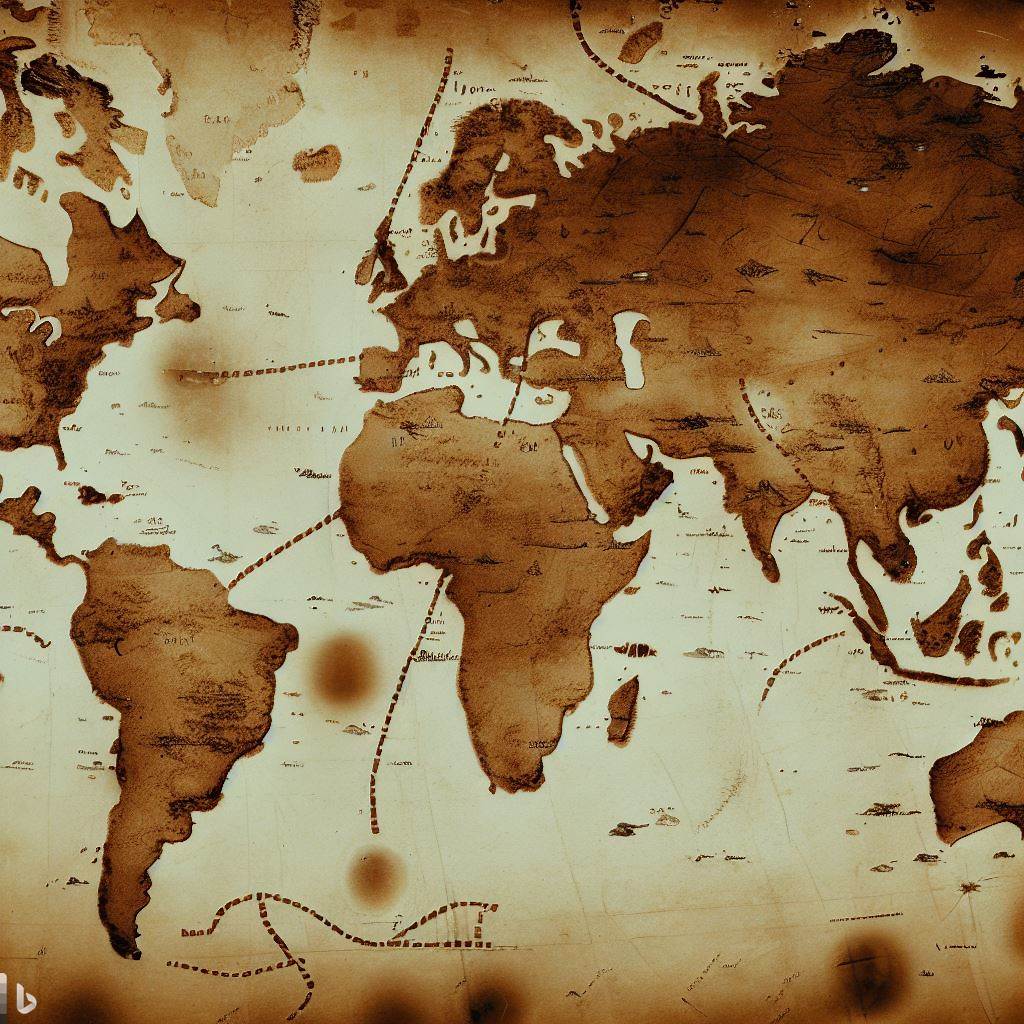The History of Coffee: From Ethiopia to Your Cup
Coffee, the beloved beverage of millions, has traversed a long and complex journey from its origins in Ethiopia to the steaming cup that graces our mornings. The history of coffee is a tale of cultural exchange, economic impact, and evolving tastes that have shaped the world we know today.
According to legend, an Ethiopian goat herder named Kaldi first discovered the stimulating properties of coffee beans around the 9th century. As the tale goes, Kaldi observed his goats dancing and frolicking after consuming the red berries of the coffee plant. Intrigued, he tried the berries himself and experienced a surge of energy. The news of this wondrous plant spread, and the coffee bean soon became an integral part of Ethiopian culture.

As coffee plants were cultivated and spread across different regions, they left an indelible mark on the societies they encountered. Coffee houses sprang up, serving as centers for intellectual and social exchange. From the Middle East and Europe to the Americas, coffee became a driving force for art, literature, and even political change. In the modern era, coffee has evolved into a global industry, with specialty shops and iconic brands shaping our daily rituals and fueling our creativity.
In this essay, we will explore the fascinating journey of coffee from its humble beginnings in Ethiopia to its prominent place in the contemporary world, delving into the cultural, economic, and environmental factors that have influenced its development along the way.
Coffee’s origins in Ethiopia
The story of coffee begins in the lush highlands of Ethiopia, where the Coffea arabica plant first grew wild. As its popularity spread within the region, coffee became a central aspect of Ethiopian culture, with traditional coffee ceremonies still practiced today.
The Middle Eastern influence
The Arab world played a significant role in shaping the history of coffee. By the 15th century, coffee had reached the Arabian Peninsula, where it gained popularity among the Sufi monasteries for its ability to keep worshippers alert during night-time prayers. The Middle East also saw the rise of the first coffeehouses, or qahveh khaneh, which became bustling hubs of intellectual and social interaction. The art of coffee preparation evolved, with techniques such as roasting and grinding the beans gaining prominence.
Coffee’s expansion to Europe
In the 17th century, European travelers and traders brought coffee back from their journeys to the Middle East, sparking a continent-wide fascination with the exotic beverage. European coffeehouses, like their Middle Eastern counterparts, became centers for socializing and intellectual discourse, playing a pivotal role in the Enlightenment. Coffee also drove colonial expansion, as European powers sought to establish coffee plantations in far-flung territories to satiate the growing demand.
Coffee in the Americas
Coffee plants first arrived in the Caribbean and South America in the 18th century, where they thrived in the region’s fertile soil and tropical climate. The burgeoning coffee industry led to the establishment of vast plantations, which in turn fueled the slave trade. Coffee culture spread to North America as well, with innovations in brewing techniques and marketing shaping the way people consumed the beverage.
The modern coffee industry
The 20th century saw the rise of specialty coffee, as consumers sought unique and high-quality beans from specific regions. Globalization and the increased focus on environmental sustainability led to the development of fair trade practices, ensuring that coffee farmers received equitable compensation for their efforts. Technological advancements revolutionized coffee production and brewing, while the influence of coffee culture on contemporary society continued to grow, with iconic brands like Starbucks and Peet’s Coffee becoming household names.
Conclusion
From the verdant highlands of Ethiopia to the bustling coffee shops that dot city streets across the globe, coffee has traversed a remarkable journey through history. What began as a simple plant discovered by a curious goat herder has grown into a cultural, economic, and social phenomenon, shaping the course of human events and inspiring countless lives.
The history of coffee is a testament to the power of cultural exchange, as each region that embraced the beverage added its own unique flavor to the story. From the ancient coffee ceremonies in Ethiopia and the intellectual coffeehouses of the Middle East and Europe, to the plantation-driven economies of the Americas and the rise of global coffee brands, this rich narrative spans continents and centuries.
As we sip our morning brew or gather with friends at a local café, we partake in a tradition that has connected people across time and space. The coffee in our cups is more than just a beverage; it is a symbol of our shared humanity and the enduring desire for community, creativity, and progress. With every sip, we celebrate the remarkable journey of coffee, and look forward to the new chapters yet to be written in its storied history.
Please check also our other article about the possible health benefits of drinking coffee.







